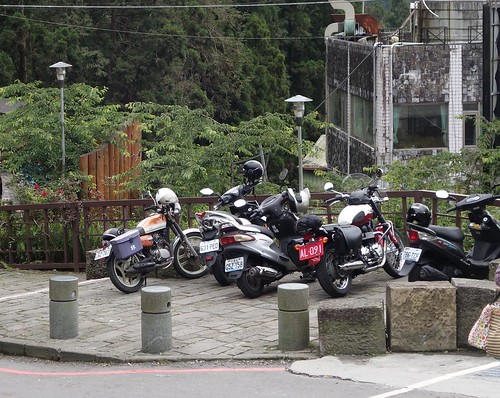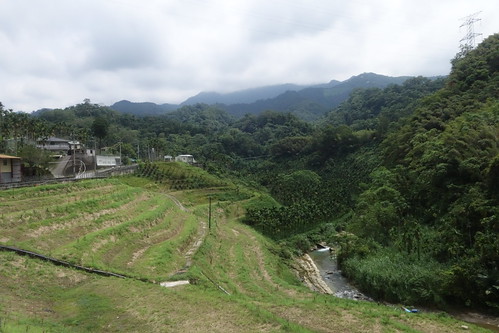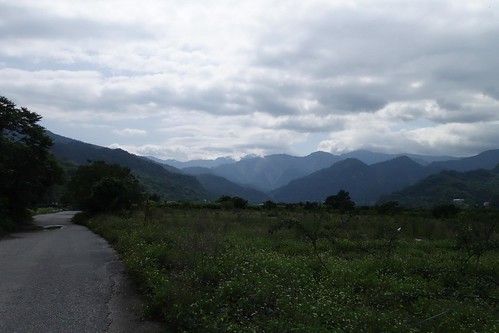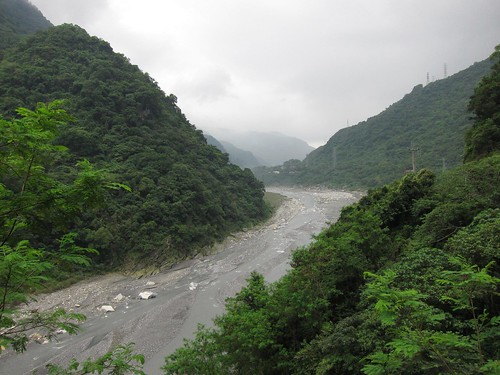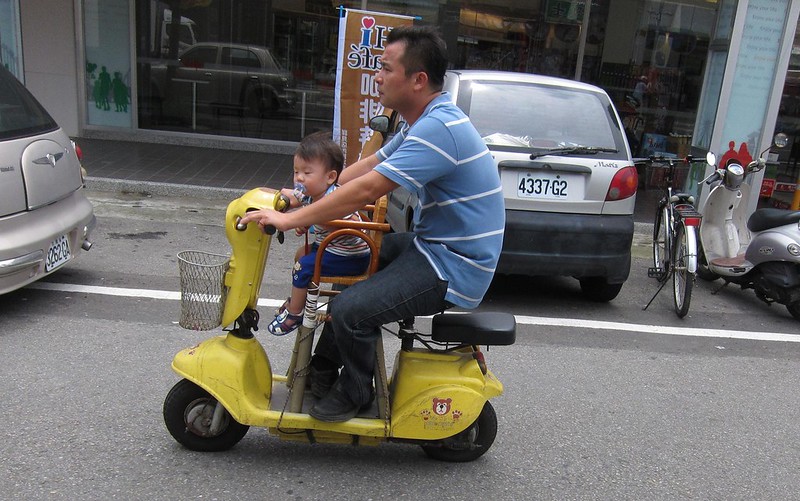'Sovereign, like love, means anything you want it to mean;
it's a word in dictionary between sober and sozzled.' -- R. Heinlein
(Updates at bottom)
So much going on in this crazy case of deportation of alleged Taiwanese fraudsters from Kenya to China. Haven't seen such a display of dysfunctional, febrile nationalism like this since
Lost in the tumescent twaddlenoise over this case is an opportunity for Taiwan. It also shows once again how the international media functions as a soft power tool for Beijing. I hope to work up a fuller treatment of that for something like CPI or Ketagalan out at the end of the week, but we can shed some light on it using this case...
Let's grab a couple of news reports first: from Reuters in the Kenyan Star Newspaper (how that brings back memories for me!):
The Kenyan government said the people were in Kenya illegally and were being sent back to where they had come from.Now yesterday from the Taipei Times the Ministry of Justice said that the deportations were legal and China had every right...
Kenya does not have official relations with Taiwan and considers the island part of China, in line with Beijing's position.
Taiwan's Foreign ministry said one of the Taiwanese sent to China was also a US national. The US State Department said it was aware of that report but was not able to discuss it at the moment "due to privacy considerations."
....
The Taiwanese government was incensed that Kenyan authorities used force , including tear gas, to get deportees out of a police station and into a plane on Tuesday. It has accused China of kidnapping eight of its nationals.
"They came from China and we took them to China. Usually when you go to another country illegally, you are taken back to your last port of departure," said Kenyan Interior ministry spokesman Mwenda Njoka.
He could not say which city in China they were being returned to, but Kenya Airways and China Southern both fly to Guangzhou.
Kenyan Foreign Affairs CS Amina Mohamed said Taipei had not contacted Nairobi about the matter. The protests came via a media briefing in Taiwan.
"We don't have official relations with Taiwan. We believe in the 'One China' policy. We have diplomatic relations with China. We haven't seen the official protest, we are actually hearing it from the media," Mohamed told Reuters.
A group of eight left on Friday and a second group of 37 Taiwanese nationals were in the process of leaving on Tuesday, Taiwan's Foreign ministry said.
Chinese Foreign ministry spokesman Lu Kang said Beijing approved of Kenya's upholding the 'one China' principle. He declined to elaborate.
However, they said that Beijing acted in conformity with the principles on legal jurisdiction in having them deported to China, where the targets of the fraud schemes reside.Today, thanks to the sudden wave of insensate nationalism sweeping the nation, the Ministry attempted to appear to reverse its position. Read what they said closely: same as yesterday, just different words.
Tai Tung-li (戴東麗), deputy director of the ministry’s Department of International and Cross-Strait Legal Affairs, told a news conference in Taipei that the government had asked Beijing to deal with the eight Taiwanese in accordance with the Cross-Strait Joint Crime-Fighting and Judicial Mutual Assistance Agreement (海峽兩岸共同打擊犯罪及司法互助協議), and that they be released and sent back to Taiwan.
“Chinese government officials said they are investigating the Taiwanese suspects for fraud involving phone scams. As these cases took place in China, they were asserting their legal jurisdiction in having the Taiwanese suspects forcibly taken to China,” she said.
Tai said that the Chinese Ministry of Public Security had informed Taiwan’s Criminal Investigation Bureau that the eight were held in custody in Beijing on Monday, and promised to handle the case in accordance with the cross-strait legal agreement.
The government will send a delegation to China to negotiate the case, Tai added.
According to information released by Chinese authorities, the victims of the phone scams originating in Kenya were all Chinese citizens — not Taiwanese — so the suspects were deported to China for investigation, Tai said.
“The telecommunication facilities used to make the telephone calls were based in Kenya, so the fraud schemes took place outside of our country, so Taiwan does not have jurisdiction [over the case],” Tai said. “Therefore, China’s handling of the case conforms to principles of international criminal jurisdiction.”
As for reports that the Kenyan court had acquitted the eight, Tai said: “They were found not guilty on three of the charges, which were operating a telecommunications enterprise without a license, operating radio communications without a license and organized crime. The ruling did not involve the fraud charges. From an objective point of view, China made the deportation request to investigate the fraud charges.”
Ibtimes report here observes:
The repatriated group's lawyer Steve Isinta said that police had told the group held at the police station to get ready because they would be leaving soon. He later received a message from one of his Taiwanese clients saying: "It's not our people coming for us," referring to the fact that Chinese officials had arrived at the police station instead of Taiwan representatives. Isinta said he did not hear from them after that.Indeed, that last claim about Kenyans not caring seems quite true. I looked at a couple of papers, and the Kenyan papers seem to be relying on outside media services for their reports, like this AFP story on it in the Daily Nation.
Isinta told Quartz: "It was illegal for them to be deported. To be deported you have to have broken the law. It's because of pressure from China."
Isinta said that most Kenyans do not understand the controversy behind the deportation, nor do they care. Isinta has filed a motion to take the country's attorney general and the police chief to court over the detention and deportation of his clients following their acquittal.
The Daily Nation also featured another piece from AFP, which observed:
Asked to comment on the row Monday, China's foreign ministry said it needed to check on the details but "the One China policy should be upheld".Check this Xinhua report (link) on the Public Security Ministry's comments on the case in Chinese. It focuses entirely on the criminal aspects, which are extensive. China says these and similar frauds have been raping Chinese citizens and all the victims are Chinese in this case. According to Xinhua, the gang set up in "dens of fraud" in Nairobi, and made internet calls to Beijing, Jiangsu, Hunan, Sichuan and nine other provinces and municipalities posing as Chinese public security authorities to commit fraud with initial estimates of millions of dollars. Old people, students, savings, -- all gone. The piece also complains that Taiwan just lets people go once they've been sent back here. China is not exactly blameless (can we have back all the criminals from Taiwan who have taken refuge there?) but they do make some strong points. It even refers to cooperation with Taiwan over similar fraud cases in SE Asia.
What's not in the report? Not even a boilerplate reiteration of sovereignty.
The foreign ministry spokesman just thanked Kenya for upholding the 'One China' policy and the foreign ministry backed that, but to my knowledge no official word concretely connected this case with the cross-strait sovereignty. No one has said "We deported them to China because they are all Chinese." The 'One China' mentions were boilerplate, trotted out on all diplomatic occasions. The same automated, unconscious words would have been uttered if Kenyan officials had hosted a tea party for Chinese diplomats.
This did not prevent BBC, always ready to screw Taiwan, from cleverly interpolating this boilerplate into its report (4th sentence) to make it look like the extraditions were related to the One China policy. Nice work, whoever did that.
Taiwan and all of its commentators here and abroad were presented with a golden opportunity NOT to make this thing about sovereignty, but instead to treat the case as a normal event between normal countries. To normalize relations between China and Taiwan. To say offhandedly "We hope that Chinese authorities will adjudicate the case in accordance with established international procedures and China-Taiwan agreements, and we are closely monitoring it. Now, moving on to the issue of falling exports and tax revenues..." That common sense move is exactly what our Ministry of Justice tried to do two days ago. Kudos to them.
Of course, Taiwan also had a chance to decouple an issue from the simpleminded sovereignty discussions in the international media. Tired of the international media's ignorant, interminable focus on Cross-Strait sovereignty issues? Stop playing that game. Instead we got total mediafail by our commentariat. The NYTimes report by the refreshingly competent Austin Ramzy was quite restrained, basically focusing on the diplomat spat, indeed, it was way more restrained than our own media. That's what we on the pro-Taiwan side should have encouraged all across the media, domestic and abroad.
Great job, guys.
Taiwan spokesman extraordinaire J Michael Cole is in CNN today on the issue, clearly identified as part of a Tsai Ing-wen funded organization (if Cole had China links, they probably would not have been so clearly identified). Sadly, Cole decided to run with the sovereignty issue and argue for other, more dubious links to odious Chinese behavior, when it could have been downplayed...
Besides the fact that the individuals were cleared of all crimes by a Kenyan court, their extradition to China, ostensibly due to pressure from Chinese officials, raises essential questions about the future implications of the "one China" policy in a time of greater Chinese assertiveness.It didn't have to raise any "essential questions". It could have been kept as a simple issue of crime under international law. Sometimes a cigar should be permitted to be only a cigar: Cole should have moved to dampen the flames, not pour oil on them. I also can't resist pointing out that the individuals were not "cleared of all crimes" by the Kenyan court. They were cleared off all the crimes the Kenyan authorities brought to the court -- the fraud charges were withheld as the Taiwan Ministry of Justice said, probably because China wanted to prosecute those (that may have been why the Kenya authorities cleared them, so there would be no tussle about where they serve their prison sentences). China appears to have wanted to send a message, not about sovereignty, but about international crime (read the Xinhua report again. Note emphasis on tawdry fraud crime). It's been doing that for years, btw.
It doesn't raise any essential questions also because it has happened before, as I noted yesterday when I observed that everyone was barking up the wrong tree. In 2011 Philippines sent a bunch of alleged fraudsters back to China. Please enumerate the repercussions of that... O yeah, there weren't any. Well, there were -- all that assiduous pursuit of fraudsters in SE Asia by China over the last few years was probably a factor that sent them off to Kenya in the first place, where things are congenial for financial criminals.
Cole (and many others) have placed the extradition of alleged gangsters accused of being engaged in fraud in the context of the kidnapping innocent booksellers in Hong Kong (see this Reuters piece, for example). Turning fraudsters into heroes of dissent is a leap into an abyss where nobody should be going. Once again, the opportunity to normalize this behavior and separate it from the vile kidnapping of the booksellers by emphasizing the differences in the case was thrown away -- instead the abnormality and evil of the kidnapping of booksellers is blurred, denigrated.
Not only that, but the Hong Kong booksellers aren't even the right context -- the 2011 Philippines deportees are, and China's campaign against fraud in SE Asia. This is not a political crime issue, but a gangster crime issue.
Even the use of the term "kidnapping" is ill-advised. I do not know what the correct legal term should be, either deportation or extradition, but these men weren't "kidnapped". They were acquitted and given a fixed time to leave the country, then bundled off to the place they came from (you can't fly directly to Nairobi from Taipei, and the cheapest flights go through China. Hence Kenya seems to be correct). That's how the system works. People get deported to countries they are not citizens of all the time. That could have been invoked in this case -- instead of focusing on "China as China" the commentary could have stressed "China as a foreign country". You know, normalizing its distance from Taiwan.
It's quite true that China rushed to get them -- because once they got back to Taiwan, they would be out of Beijing's reach.
Cole claims that the 2009 crime-fighting agreement is a "dead instrument." Two days ago the Ministry of Justice said that China had notified Taiwan that the case will be handled in accordance with that. Let's wait and see on that, shall we?
Taiwan really ought to be going to bat for international law and its cross-strait agreements on crime, as the Ministry of Justice initially attempted to do. International law is one of the things that helps keep Taiwan out of Beijing's clutches -- heck, we could even have leveraged Chinese victimhood to support international law, in this case. Maybe we could have used this to get some of our own criminals there sent back...
Another lesson here is how, if you don't suppress the media's urge to make everything about the sovereignty issue, it will go right ahead and keep pointing that out, thus helping Beijing enforce its claims and make them known to the world.
Not only that, but once you claim that this is Beijing making trouble for Tsai, you've made trouble for Tsai that you didn't have to make.
Great work all around, folks.
It will, of course, have a temporary impact on Taiwan's attitudes toward China, but since they were largely negative anyway...
Finally, just as in the Philippines case, all this noise about "kidnapping", sovereignty, and the China threat may be out there to obscure an important truth that no one in Taiwan wants to face: one of Taiwan's chief exports is organized crime.
UPDATE: Julian Ku, the international law professor who tried to claim it was perfectly legal for China to maim and murder Taiwanese and annex their island (his political allegiance should be obvious if you find some of his stuff, so filter whatever he says hard), is cited in this NYTimes piece. NYTimes observes:
Deporting suspects to third countries is not illegal under international law, said Julian Ku, a professor of international law at Hofstra University.Recall that in the 2011 case, it took months of negotiations to get back the Taiwanese Manila sent to China. They didn't just send them back right away as NYT could be read to imply. Same thing will happen here.
China also has the right under international law to prosecute people suspected of committing crimes directed at Chinese territory, Mr. Ku said. “China makes a lot of bad arguments, but this one is pretty good,” he said.
But, complicating matters, China and Taiwan have abided since 2009 by their Cross-Strait Joint Crime-Fighting and Judicial Mutual Assistance Agreement, which formalized criminal-justice cooperation and established a procedure for each side to return the other’s citizens in legal cases. In a 2011 fraud case, 14 Taiwanese suspects who had been deported from the Philippines to China were sent back to Taiwan under the agreement.
Some experts suspect that China’s change in strategy is a deliberate warning to Taiwan’s newly elected president, Tsai Ing-wen, who will take office in May and has advocated an approach to cross-strait relations that is more cautious than her predecessor’s.
“The Chinese are definitely trying to send a message,” Mr. Ku said. “Before this case, the Taiwanese were used to being consulted by China. The level of trust that made the agreement work seems to have broken down.”
Again, there's a context missing: if all those Taiwanese criminals residing in China who haven't been sent back are not a message to Ma Ying-jeou (and Chen Shui-bian) how is it that this one case is a message to Tsai Ing-wen? The Kenyan investigation long predates Tsai Ing-wen's election. The timing is a coincidence, unless you want to argue that Beijing arranged it with Nairobi (feel free). Because the negotiations will drag out for months, it is way too early to say how and whether China is cooperating.
UPDATE 2: Taiwan Law Blog summarizes the three positions of Taiwan, China, and Kenya.
UPDATE 3: Here is the Kenya Star Jan 2015 report of the original arrest of the Kenya 8, originally in Dec of 2014. You want to claim this is about Tsai Ing-wen, go right ahead. I'll laugh at you. Note that the list of charges is consistent with that offered by the Ministry of Justice in its original statement.
The eight were arrested at Ngong Avenue, Ngong, in December.Here is what the Ministry of Justice said:
Their arrest came after 77 Chinese were arrested following a fire outbreak at their Runda, Nairobi, residence.
The 77 have denied the charges of illegally running a telecommunication system, conspiring to commit a felony and engaging in organised criminal activity.
Police suspect the foreigners may have been involved in bank fraud, money laundering and other serious financial crimes in other countries using the telecommunication equipment seized.
As for reports that the Kenyan court had acquitted the eight, Tai said: “They were found not guilty on three of the charges, which were operating a telecommunications enterprise without a license, operating radio communications without a license and organized crime. The ruling did not involve the fraud charges. From an objective point of view, China made the deportation request to investigate the fraud charges.”The Ministry of Justice's initial statement that fraud charges were not pursued appears to be correct.
Now here is the follow up Jan 27 report from The Star. Note that the timing of the case was fixed back in Jan, when the men began serving a one-year term.
Here is another report of Taiwanese operating an illegal radio station (?) but I don't know if these are the same guys sent to China this week. This appears to be a related report from Dec of 2014. Tentatively, the 8 and 37 Taiwanese all appear to have been discovered in the same fire, but were handled separately.
UPDATE 4: Commenter observes:
According to today's China Post here is what happened to the Taiwanese that were eventually sent back from the PI five years ago.UPDATE 5: Ministry of Justice testifies about Kenya case:
"Two were found not guilty, while the rest were handed sentences ranging from one year and four months to three years and eight months under combined violations.
However, no one was jailed as the case allowed them to convert imprisonment into fines, Sun stated."
It confirms what China has been complaining about, and why they went to prosecute these people themselves.
However, Chen stated that the preliminary investigation showed that the international fraud ring only targeted Mainland Chinese, and that there were no Taiwanese victims. “In spite of this, we will still send people to the Mainland to learn more about the case. In the past, Taiwanese suspects in similar cases were repatriated to Taiwan, but were later released because we had no jurisdiction. Therefore, this time we should be more cautious in dealing with the case,” stressed Chen.UPDATE 6: The Nation newspaper of Kenya reported in Jan 2015 that China was asking for the prisoners. Taiwan has had a whole year to act on this. Either the diplomatic corps didn't care, or it was incompetent. It didn't move until it became a nationalist issue in Taiwan, and the government had to stoke cross-strait emotions to cover up the fact that it had dilly-dallied for a year, done nothing, and then been blindsided. Taiwan had a whole year to secure "due process". Posted on it several posts above this one.
REF: The 2011 Phils case and China power.
_______________________
[Taiwan] Don't miss the comments below! And check out my blog and its sidebars for events, links to previous posts and picture posts, and scores of links to other Taiwan blogs and forums!
